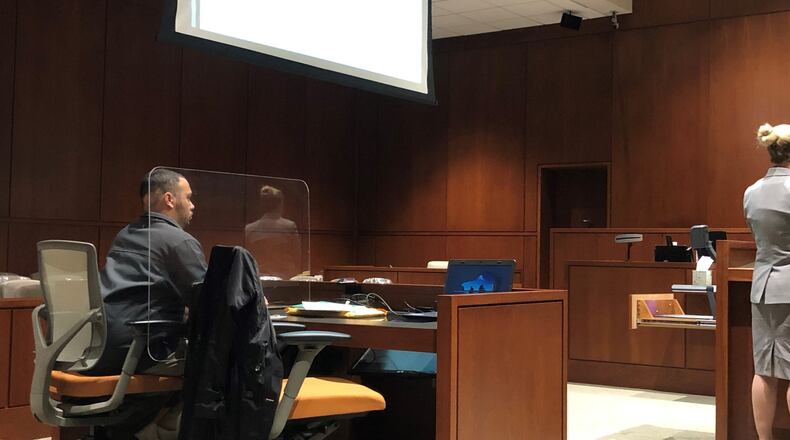Combs was terminated on Feb. 21, according to the Ohio Department of Rehabilitation and Correction.
Combs said he unaware he was free to go while under preliminary questioning on Nov. 1.
Combs and his lawyer, Laura Woodruff, said he felt compelled to answer questions until the investigators turned on a recorder and read him his Miranda rights.
“Inmates make accusations frequently,” said Combs, a state prison guard for more than four years. “We have to cooperate with any investigation.”
RELATED: Prison guard indicted for alleged sexual battery on inmate
As a result, Woodruff urged Peeler to declare Combs’ statements inadmissible at trial.
Assistant County Prosecutor Kevin Hardman charged Combs only stopped answering questions after realizing he had made statements that could be used to help win a conviction on the third-degree felony.
“Unfortunately he made more statements than he felt comfortable with,” Hardman said.
The fact Combs declined to answer further questions was “proof that he knew” his rights, Hardman added.
Combs is accused of using his authority over the inmate, whom he was strip-searching after an altercation, to get oral sex on Sept 15.
Ohio Highway Patrol investigators interviewed Combs after he arrived for work on Nov. 1 at the prison, one of two on Ohio 63 west of Lebaonon.
“He was defensive from the very beginning,” Trooper Nathan Stanfield said. “He just kept adding more to his story.”
Stanfield testified that Combs eventually admitted the inmate was strip-searched during questions he asked before turning on the recorder and reading the Miranda Warnings.
Combs said the strip search was done because the inmate was wearing “articles of clothing” not permitted in the prison’s segregation unit, where he was being transferred as a result of the altercation.
Stanfield said the questions before reading the Miranda Rights were designed to establish a “synopsis” of what happened and establish rapport with Combs.
MORE: Prison employee acquitted of having sex with inmate
Stanfield said Combs never said he wanted to leave or asked for a lawyer.
Under Woodruff’s questioning, Stanfield acknowledged Combs indicated he wasn’t aware he could leave when asked about this by the other investigator.
Combs told Woodruff he knew there would be consequences if he didn’t submit to the interview and recognized the investigators’ authority.
“This places him in a unique situation,” Woodruff said. “Those things are in conflict with each other.”
Combs remains free, while awaiting the judge’s decision and trial.
About the Author

